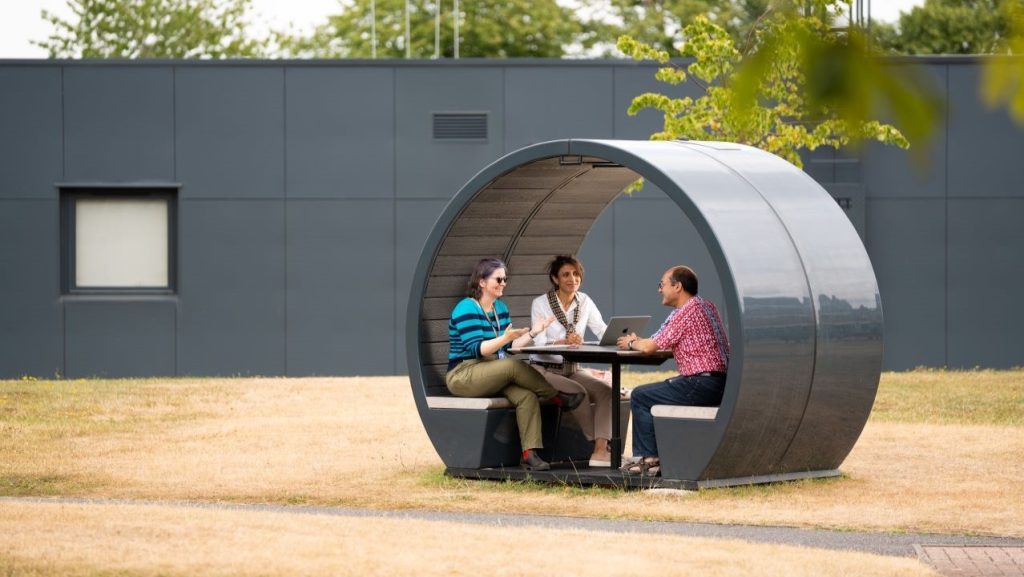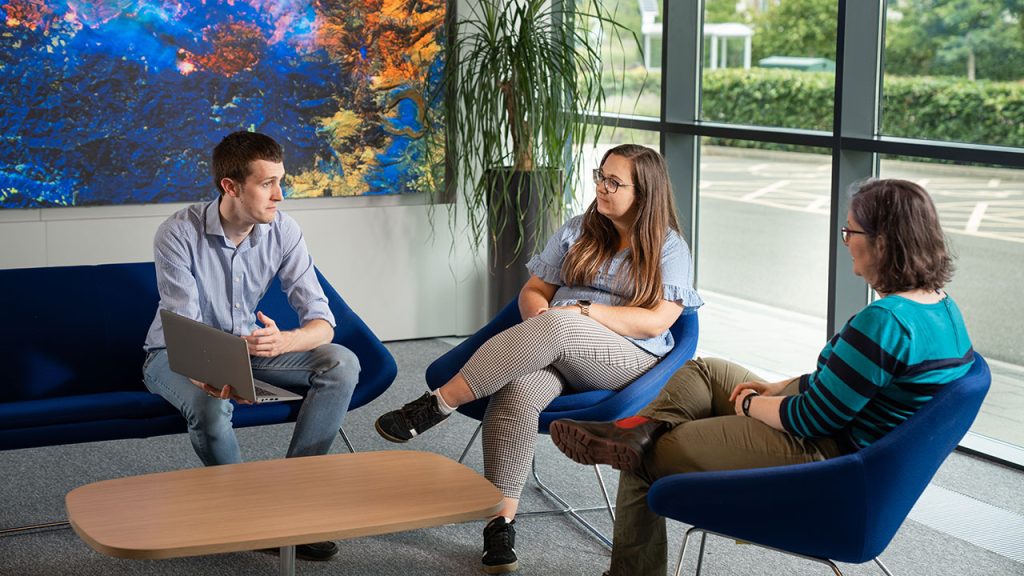
Investing for change: growing engagement with underrepresented audiences
Earlier this year, the National Centre for Atmospheric Science (NCAS) launched a pioneering initiative to coordinate engagement activities with people who are traditionally underrepresented in science, called the Community for Change. We set out to use engagement activities to nurture an inclusive research environment where equality and diversity thrives.
Over the last six months we have:
Set up national partnerships with engagement charities
- These organisations are, The Access Project, Active Bystander Training, Black British in STEM, Nuffield Research Placements and STEM Ambassador & Brightside Mentors.
- Established unique engagement activities with each of these partners ranging from mentorship, tutoring, training and placement opportunities.
Brought together our colleagues to form a thriving community of allies for inclusion
- 55 colleagues have joined our Community for Change, representing nearly one quarter of our workforce.
- 41 colleagues have completed the Active Bystander Training.
- 4 colleagues tutored with The Access Project last year, and 5 will tutor next year.
- 6 colleagues helped provide 3 Nuffield Research Placements students in University of Leeds and University of York.
- Staff have benefited from this work, “The placement enabled me to develop my skills in outreach, leadership and communication”, & “Tutoring is a great way to illustrate what science can lead to”.
Shown leadership in tackling inequality across the science community and worked to create sustained impact
- Creation of a part-time Community for Change Officer role to manage our partnerships, becoming our first engagement-focused role at NCAS.
- Board commitment to the inclusion of engagement work in future role creation, and support to line managers incorporating it into forward work plans.
- Championed across the Natural Environment Research Council board and Public Engagement Celebration Event, as well as on social media through key stakeholders sharing our activity.
“It was a great learning experience for us, getting to know what we needed to do to support Asniette [placement student], but also having the opportunity to provide an experience of a working environment and the type of research that is done within NCAS. It was exciting to be able to set up a project which will provide us with a valuable resource in the future and also allowed Asniette to develop new skills.”
– Dr Louise Whitehouse, Education and Staff Development Manager at the National Centre for Atmospheric Science
Our approach
When creating the Community for Change, we worked closely with fourteen colleagues as part of a working group to identify the priorities for our approach. We surveyed our colleagues to identify their views on engagement activities, including challenges, motivations, and values. From this, we selected engagement activities that varied in terms of time commitment and activity style to suit broadly.
We partnered with organisations who have an established relationship with people traditionally underrepresented in science, and with a proven track record for successfully providing impactful and long lasting engagement. We also chose organisations with a national reach, so that our distributed colleagues could share common experiences. We based our selection criteria for our partnerships using the Science Capital Approach and Equity Compass.
We created a visual identity, including an emblem of allyship, to promote our initiative and create a sense of belonging for everyone taking part in engagement activities. We routinely run information sessions for colleagues about the initiative, including two talks at our Staff Meeting, and question and answer sessions with our specific partners.
We secured internal funding by demonstrating our contribution towards our Equality, Diversity and Inclusion plan, and created a part time Community for Change Officer role to provide our staff with centralised support. This role has been key to maintaining our momentum since launch, and provides a consistent point of contact to manage relationships with our partners, especially for activities that require coordination between a number of different parties, such as Nuffield Research placements.

Our challenges
We’ve found a strong preference for colleagues to join the Community for Change through the least time-consuming activity, Active Bystander training. Our colleagues tell us they find the barriers to face-to-face engagement activities are time and confidence. However, with a large group of staff showing willingness to support the Community for Change, we have a strong foundation to build on, and will focus on developing training and working with line managers to incorporate engagement activities into work plans.
It has been challenging to grow strong relationships with every partner organisation, as developing trust and shared commitment takes time. We recognise that we cannot offer all our partners everything they need to meet their goals. Through our Community for Change Officer, we’re dedicating resources to a single point of contact who can build trust and understanding over time.
We specifically set out to dedicate a stream of engagement to working with Black people in science, however, our partnership with Black British in Science, Technology, Engineering and Maths has not been able to take on our colleagues as mentors. We’re looking at whether open days events may offer better support for our partner, and whether we can offer our support to additional partners who work with the same audience in a different way.
Community for Change hasn’t yet provided the forum we hoped for staff to share learning together and hold open conversations. We have had glimpses of conversation – via direct emails, our staff meetings, and Slack, but we would like to push this further – for example by dedicated events for our allies.
“The placement enabled me to develop my skills in outreach, leadership and communication as well as giving me the opportunity to mentor and teach; very different from my day to day!”
– Laurents Marker, Software Developer at the National Centre for Atmospheric Science
Forward planning and proposals
Through our evaluation, we recognise that the success of the Community for Change depends on central coordination to ease the time commitments normally associated with setting up engagement activities, and to develop positive relationships with our partners. To continue growing our impact, it is essential that the Community for Change continues to benefit from a dedicated engagement role.
We would also recommend budget extensions for engagement activities and establishing long term corporate partnerships. This would allow us to support our partners to continue delivering their activities, increasing the long-term impact. For example, with a £25,000 annual budget for the Community for Change, we could fund a partnership with the Access Project which allows us to support a cohort of 20 students on the project, run in person events and increase the NCAS brand through social media shares and sharing our logo.
We find that our colleagues strongly support taking part in engagement activities with a clear purpose to create a more inclusive research environment. To maintain this focus, we believe the Community for Change should be complemented by a wider engagement strategy, which offers colleagues ways to engage in engagement for different purposes, such as bringing society closer to topical research.
